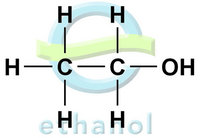GM Offers Biofuel (Ethanol) Vehicles in Thailand
 |
MORE: E85 Conversions Along With Cash For Clunkers
GM Says:""The (global auto) industry is 96 percent dependent on oil and this is not sustainable. Ethanol has the biggest potential to displace petroleum in the next decade as it is widely available and can be made cheaply".
KUALA LUMPUR, Malaysia May 27, 2009; Eileen Ng writing for the AP reported that General Motors Corp. plans to launch vehicles that can run on biofuel later this year in Thailand, which is offering incentives to cut reliance on gasoline, a senior official said Tuesday.
David J. Tulauskas, director of public policy for GM Asia Pacific, said the vehicles will be able to run on E85 fuel, a blend of 85 percent ethanol with gasoline, or E20 fuel which contains 20 percent ethanol.
Volvo Thailand launched in December the first flexible fuel vehicle that can run on a range of alternative fuels including E85, providing an option for those who want to go green and cut their fuel costs.
Tulauskas said the E20 fuel is 20 percent cheaper than regular gasoline, while E85 is 40 percent lower. The Thai government also offered incentives, including lower excise taxes for biofuel vehicles, he said.
"The (global auto) industry is 96 percent dependent on oil and this is not sustainable," he told a two-day auto conference here. "Ethanol has the biggest potential to displace petroleum in the next decade" as it is widely available and can be made cheaply.
"We expect good response" when the vehicles are launched in Thailand, he said. He declined to give further details.
The Thai government is promoting its ethanol industry, which can be made from crops such as sugar cane and corn. Compared to gasoline, the E85 fuel emits up to 70 percent less greenhouse gas that is blamed for global warming and can reduce oil demand by as much as 30 percent, officials said.
Tulauskas reiterated that GM's Asia-Pacific operations remained stable despite possible bankruptcy in the U.S.
Detroit-based GM, which has received billions of dollars in government financial support, is working on a restructuring plan and has until June 1 to avoid a possible bankruptcy filing.
ETHANOL TUTORIAL
Courtesy Montana Feed & Fuel
Ethanol is produced from starch or sugar based feed products such as corn, potatoes, wheat, barley and sorghum, as well as from agricultural waste products including sugar, rice straw, cheese whey, beverage wastes and forestry and paper wastes.
Historically, corn has been the primary source because of its relatively low cost, wide availability and ability to produce large quantities of carbohydrates that convert into glucose more easily than other products. Today, approximately 90% of the ethanol produced in the United States is produced from corn.
Ethanol contains approximately 35% oxygen and when combined with gasoline, it acts as an oxygenate that increases the percentage of oxygen in gasoline. As a result, the gasoline burns cleaner and releases less carbon monoxide and other exhaust emissions into the atmosphere. Although not all scientists agree about the existence or extent of environmental benefits associated with its use, the use of ethanol is commonly viewed as a way to improve the quality of automobile emissions.


